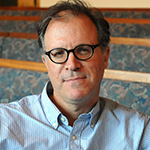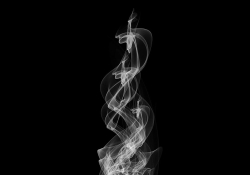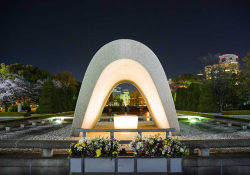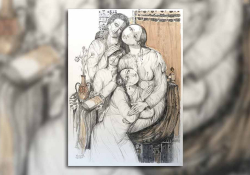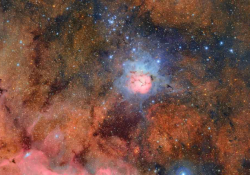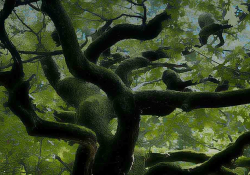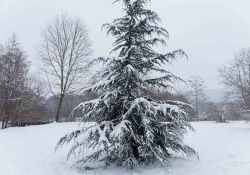Fictional Translations: Pablo Neruda’s “Oda al actor”
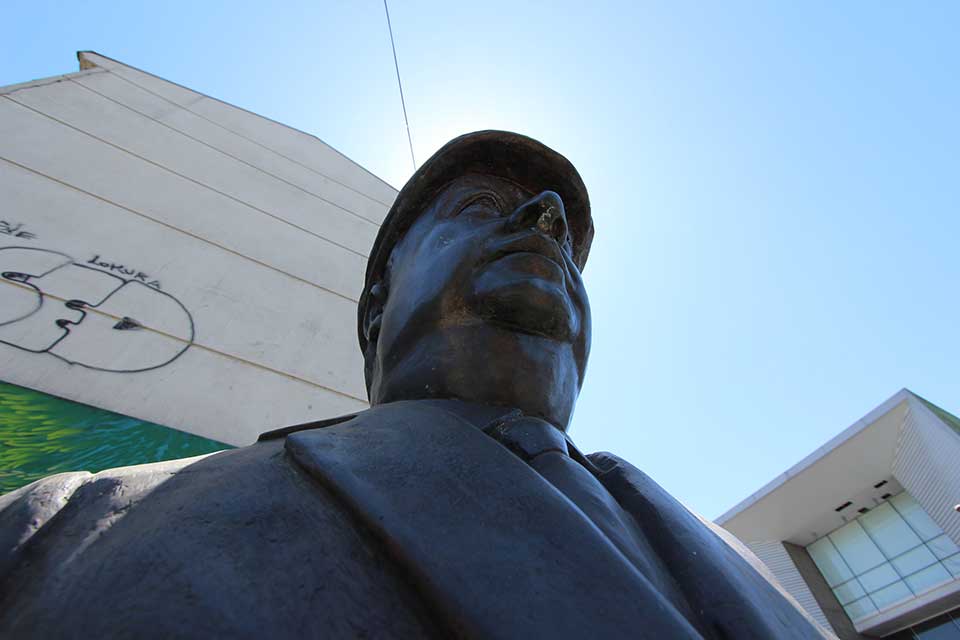
In what follows, I have created three heteronyms to render Pablo Neruda’s “Oda al actor” into English. They are presented in chronological order by date of birth. Their views on translation are dramatically different: one specializes in baroque styles but looks at Neruda to achieve the opposite—“simplicity as art”; another uses ChatGPT to “delegate responsibility”; and a third, part of Gen Z, believes in “humility in language as a strategy to liberate the world.” These are their bios and philosophical stands:
Born in Manchester and raised in Bogotá, Jacinta Candelaria (1933–2007) studied at the London School of Economics before moving to Phoenix, where she was part of the Chicano Movement. Candelaria translated Tomás Rivera’s And the Earth Did Not Part (1981), then engaged with baroque Latin American writers such as Severo Sarduy (Christ of Rue Jacob, 1987), José Lezama Lima (Havana: City of Columns, 1993), and Gustavo Pardeles (Loveless Love, 1996). Her penchant for ornamented authors is in contrast with the simplicity of Neruda, whose work she repeatedly translated (Ode to Typography, 2004; Album of Birds, 2005; and Sea Quake, 2006). “The translation’s task, I’ve learned over time,” Candelaria stated in an interview in The Telegraph (August 6, 1999), “is to vanish without trace—to become a ghost.”
Catalan essayist Albert Ines (b. 1971), an arts columnist for La Vanguardia, translates from Catalan, Spanish, French, and Portuguese. His parents were American ex-pats in Barcelona. He worked as a waiter, a gamer, a securities analyst, and in secret intelligence before turning to literature. Among his books are The End of Reason (2003) and Aquaman in the Bronx (2016). Ines engages with AI. “After looking to create a version of ‘Oda al actor’ different from those by Alastair Reid, W. S. Merwin, Ilan Stavans, and Jacinta Candelaria, I used ChatGPT as a way to delegate responsibility, although I’m behind AI (which, by the way, my initials mimic). My approach, I believe, is utterly reverential: I, or the “I” in AI, is a summation of previous efforts,” Ines posits on the blog ZYXYZ (December 22, 2022). “With the advent of AI,” he adds, “translation went from being a task, as Walter Benjamin, saw it, to becoming a game with a deus ex machina.”
Finally, jennifer lerner-smith (b. 1989), the daughter of a Dominican father and a Jewish mother, grew up in New York City. She has worked for social-justice theater. Her translated works includes Graciela Dorante’s a girlfriend con duende (2019) and Liz Artigas-Burton’s #MeToo novel Cancel This! (2023). “neruda’s legacy is tarnished. in his memoir he describes a rape scene,” lerner-smith explains in a text. “his oeuvre requires decontextualizing, which i’ve implemented in ‘ode to actxr.’” lerner-smith does away with punctuation, among other standard elements.
The nuances of these three versions test Paul Valéry’s dictum: “Fidelity to meaning alone in translation is a kind of betrayal.”
One last thought: although fitting squarely into the 225 he composed, Neruda’s ode is also fictional.
* * *
“Oda al actor,” by Pablo Neruda (1957)
No recuerdo
a qué edad,
en tu otoño,
te vi
por primera vez
sobre
las tablas,
histrión
de la cueva
platónica:
el telón se levantó y
apareciste
como un ídolo
impecable.
Reconocí
tu gesto desnudo,
la claridad de tus manos,
tu ímpetu tenaz,
tu paz circulatoria,
aunque supe
que,
de frente,
no eras tú
a quien miraba
sino
un espíritu,
un fantasma,
el aliento divino.
¿Quién eres?
Profeta,
diputado,
mentiroso,
bufón,
impostor,
la voz de todos,
la imagen ancestral
de nuestros fundadores,
la luz y las tinieblas,
el sí y el no.
Cuando eres los otros,
eres una versión
exaltada de nuestro corazón,
una copia
sin original,
mito del arquetipo
del tipo
que es
el hombre primordial.
Desde entonces,
cada vez que te veo
en el escenario
como el tío Vania,
anuncias otra versión
de la condena
y el oprobio.
Y cuanto más te observo,
aún más admirarte
quiero.
Ríe
y
llora y besa,
di
y
sufre y ama,
pero no mueras.
Eres el hueco,
el eco
del eco
en el hueco
de nuestro ser.
Eres
un retumbar
que nos nombra
y al nombrarnos
nos da vida
sin desdeñar
la sabiduría
de nuestros errores
en el camino
del temblor
de nuestra verdad.
Como imán,
de todas
las esquinas del pueblo,
la gente
se sacude,
se magnetiza,
se desenvuelve,
sigue tu
huella,
tu ola,
tu nube,
tu esplendor,
tu canto estridente
de la discordia
que
finges,
Shakespeare
detrás
de Shakespeare,
el hilo subterráneo
que tu emoción
que
despierta
en nuestra alma
el
sonido
adolorido
de la solidaridad.
Alrededor
de ti,
somos una única canción
y sabemos que con la autenticidad
la ardua lucha
es sostenible,
porque
la verdad
es la máscara.
En la plenitud
de tu espaciosa
vida,
danos gestos,
danos estremecimiento,
danos coherencia,
permite
que seamos
mejores
versiones
de
nuestro
ser.
Cada vez
que te veo,
pregunto:
¿quién eres?
Soldado,
comandante,
Prospero,
tartufo,
panadero,
poeta,
humano.
La vida es corta
y el teatro
nos distrae.
Eres
el Segismundo
que clama
por su libertad,
que no agota
su fuerza
en la lucha
por un
mundo mejor.
Suéñanos,
actor,
que contigo
soñaremos
nuestro rostro
mejor.
Suéñanos,
que tu consejo
y atención
son nuestro espejo
y salvación.
Porque el despertar
permite
ser testigos del dolor.
* * *
Version #1
“Ode to an Actor,” by Jacinta Candelaria (2004)
I don’t remember
at what age
in your autumn,
I saw you
for the first time
onstage,
thespian
in Plato’s
cave:
the curtain went up
and you appeared
as an implacable idol.
I recognized
your naked gesture,
the clarity of your hands,
your tenacious drive,
your circulatory peace,
although I knew
that,
facing you,
it wasn’t you
I saw
but
a spirit,
a ghost,
the divine breath.
Who are you?
Prophet,
politician,
liar,
buffoon,
impostor,
the voice of everyone,
ancestral image
of our ancestors,
light and darkness,
yes and no.
When you are others,
you are an exalted
version of our heart,
a copy
without original,
myth of the archetype
of the type
that is
the primordial man.
Since then,
each time I see you
performing
Uncle Vanya
you announce another version
of condemnation
and opprobrium.
And the more I look at you,
the more I want to
admire you.
Laugh
and
cry and kiss,
say
and suffer and love,
but don’t die.
You are emptiness,
echo
of the echo
in the emptiness
of our being.
You
are the thundering
that names us
and, by naming us,
grants us life
without dismissing
the wisdom
of our mistakes
on the road
of the thunder
of our truth.
Like a magnet,
from all
the town corners,
the
people
are shaken up,
magnetized,
unfolded,
following your
footsteps,
your wave,
your cloud,
your splendor,
the strident song
of the discord
you pretend,
Shakespeare
behind
Shakespeare,
the subterranean thread
of your emotion
awaking
in our soul
the painful
sound
of solidarity.
Around
you,
we are a single song
and know that with authenticity
the arduous fight
is sustainable,
because
truth
is a mask.
In the plenteousness
of your spacious
life,
grant us gestures,
shudder,
coherence,
let us be
a better
version of
who we
are.
Who are you?
Soldier,
lieutenant,
Prospero,
Tartuffe,
baker,
poet,
human.
Life is short
and theater
distracts us.
You are
the Segismundo
who clamors
for freedom,
who doesn’t exhaust
his strength
in the battle
for a
better world.
Dream of us,
actor,
for with you
we shall dream
our better
face.
Dream of us,
for your advice
and attention
are our mirror
and salvation.
Because waking up
makes it possible
to be witnesses to pain.
* * *
Version #2
“Ode to Actors,” by Albert Ines (2022)
I cannot recall
at what age,
in your autumn,
I first beheld you
upon
the stage,
thespian
of the Platonic cave:
the curtain rose and
there you appeared,
an immaculate idol.
I recognized
your naked gesture,
the clarity of your hands,
your tenacious fervor,
your circulatory peace,
though I knew
that, face to face,
it wasn’t you
whom I gazed upon,
but rather
a spirit,
a phantom,
the divine breath.
Who are you?
Prophet,
deputy,
liar,
jester,
impostor,
the voice of all,
the ancestral image
of our founders,
light and darkness,
the yes and the no.
When you are others,
you are an exalted version
of our hearts,
a copy
without an original,
myth of the archetype
of the type
that is
the primordial man.
Since then,
every time I see you
upon the theater
as Uncle Vanya,
you announce another version
of condemnation
and disgrace.
And the more I look at you,
the more I yearn
to admire you.
Laugh
and
cry and kiss,
speak
and
suffer and love,
but you do not die.
You are the void,
the echo
of the echo
in the hollow
of our being.
You are
a resounding
that names us
and in naming us
gives us life
without disregarding
the wisdom
of our errors
on the path
of the tremor
of our truth.
Like a magnet,
from all
corners of the town,
the people
shake off,
magnetize,
unravel,
follow your
trace,
your wave,
your cloud,
your splendor,
your strident song
of discord
that
you feign,
Shakespeare
behind
Shakespeare,
the subterranean thread
that your emotion
awakens
in our soul,
the
painful
sound
of solidarity.
Around
you,
we are a single song
and we know that with authenticity
the arduous struggle
is sustainable,
for
truth
is the mask.
In the fullness
of your spacious
life,
grant us gestures,
grant us shudders,
grant us coherence,
allow us
to become
better
versions
of
our
selves.
Each time
I see you,
actor of actors,
I ask:
Who are you?
Soldier,
commander,
Prospero,
Tartuffe,
baker,
poet,
human.
Life is short
and theater
distracts us.
You are
the Segismundo
who cries out
for freedom,
who does not exhaust
their strength
in the fight
for a
better world.
Dream us,
actor,
for with you
we shall dream
our better faces.
Dream us,
for your counsel
and attention
are our mirror
and salvation.
For awakening
allows us
to bear witness to pain.
* * *
Version #3
“ode to actxr,” by jennifer lerner-smith (2023)
i don’t remember
at what epoch
in your autumn
i saw you
for the first time
on stage
actxr
in plato’s
cave
the curtain went up
and you appeared
as an implacable idol.
i recognized
your naked gesture
the clarity of your hands
your tenacious drive
circulatory peace
although i knew
that
facing you
it wasn’t you
i recognized
but
a specter
a ghoul
the divine breath.
who are you?
prophet
diplomat
hypocrite
joker
fraud
the voice of everyone
ancestral image
of our ancestors
light and darkness
yes and no
when you are others
you are an exalted
version of our heart
a copy
without original
myth of the archetype
of the type
that is
the primordial human
since then
each time I see you
performing
uncle vanya
you announce another version
of condemnation
and opprobrium.
and the more I look at you
the more I want to
admire you
laugh
and
cry and kiss
say
and suffer and love
but don’t die.
you are the emptiness
echo
of the echo
in the emptiness
of our being.
you
are the thundering
that names us
and while naming us
grants us life
without dismissing
the wisdom
of our errors
on the road
of the thunder
of our certainty
like a magnet,
from all
the town corners
the
community
is shaken up
marginalized
unfolded
following your
fingerprints
your wave
cloud
splendor
the resonant song
of the discord
you pretend
shakespeare
prior
shakespeare
the subterranean thread
of your emotion
awaking
in our soul
the painful
sound
of solidarity
around
you
we are a single song
and know that with authenticity
the arduous fight
is sustainable
because
truth
is a mask
in the openness
of your spacious
life
grant us motions
shudder
coherence
let us be
a better
version of
who we
are
each time
i see you
i ask
who are you
weaponizer
lieutenant
prosperx
tartuffe
baker
poet
human
life is short
and theater
distracts us
you are
the segismundx
who clamors
for freedom
who doesn’t deplete
his strength
in the battle
for a
better world
dream of us
actxr
for with you
we shall dream
our better
face
dream of us
for your advice
and attention
are our image
and salvation.
because waking up
makes it possible
to decolonize pain
Translations from the Spanish
